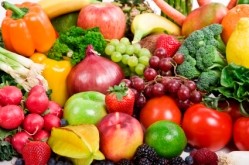Taxing junk food could improve diets, review finds

Published in PLoS Medicine, the review combined the results of 32 different modelling studies, all from OECD (Organisation for Economic Cooperation and Development) countries. The authors found that a 10% increase in the price of soft drinks could decrease consumption anywhere from 1% to 24%.
For foods high in saturated fat, the combined data suggest that for every 1% price increase, energy intake from saturated fat could fall by 0.02%.
"Based on modelling studies, taxes on carbonated drinks and saturated fat and subsidies on fruits and vegetables are associated with beneficial dietary change, with the potential for improved health,” the authors wrote in the study.
In addition, they found that decreasing the price of fruits and vegetables by 10% increased consumption 2% to 8%.
However, for subsidies, they warned there was some evidence to suggest savings made on healthier foods might be used to buy less healthy foods, like sugar, and shoppers might compensate by reducing their purchases of other healthy foods, like fish.
"It must be noted that the impact of any given food tax or subsidy is likely to differ by country depending on factors such as the type of tax system implemented, health status, co-existent marketing, cultural norms, expendable income, and the social role of food,” they wrote.
"…Given the limitations of the current evidence, robust evaluations must be planned when food pricing policies are implemented by governments."
In addition, although opponents of food and beverage taxes have argued that they are regressive, in that they have the greatest effect on those on the lowest incomes, the authors suggest that the benefits of better diets could also disproportionately affect lower income consumers.
The authors concluded: "Additional research into possible compensatory purchasing and long-term population health outcomes for different socio-economic groups is needed."





















